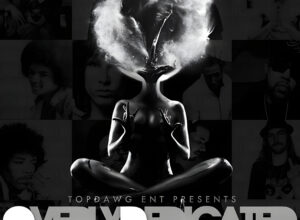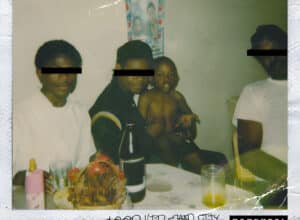Released: 2022
Count Me Out by Kendrick Lamar is a raw, introspective dive into the rapper’s psyche, wrestling with themes of self-doubt, redemption, resilience, and the eternal struggle with one’s inner demons. Lamar crafts a narrative that’s both personal and universal, using his journey to inspire those who feel weighed down by their past or unseen by the world around them.
Lamar opens the track acknowledging the uncertainty and challenges of life, metaphorically referring to it as a “dark road.” The verse, “All of these hoes make it difficult,” could be seen as commentary on distractions and the people who bring negativity into his life, complicating his path to personal growth and redemption. When he speaks about a “breakthrough” and making things right, it’s Lamar’s declaration of intent to confront and overcome his past mistakes, seeking reconciliation with himself and possibly a higher power, hinted at with “With the Father, Son, ’til then, I fight.”
Lamar’s reflection on fame, morality, and self-trust amidst the chaos of life and his career is evident in lines like, “Got six magazines that’s aimed at me,” showcasing the pressures of celebrity and public scrutiny. His mention of struggles with trust, even in himself, “This time around, I trust myself,” underscores a moment of self-realization and empowerment amidst these challenges.
The chorus, “I love when you count me out,” is a powerful assertion of Lamar’s resilience. It’s as if he thrives on being underestimated, using doubt from others as fuel to prove himself wrong and right. This sentiment is reinforced by the visceral energy of the repeated phrase, “Fuck it up, fuck it up, fuck it up, fuck it up, fucking it up,” symbolizing destruction of the old to make way for the new, or perhaps the chaos and effort needed to overcome personal battles.
As the song progresses, Lamar delves into loneliness, betrayal, and the search for genuine connection, contrasted against the backdrop of his fame. The verses “When you was at your lowest, tell me, where the hoes was at? When you was at your lowest, tell me, where the bros was at?” suggest a critique of fair-weather friends and the isolation felt even in crowds. The reflective aspect of looking into the mirror “Ain’t nobody but the mirror looking for the fall off” further emphasizes self-reliance and introspection.
The latter parts of the song explore the idea of healing and transformation. “Sun up now, yesterday is fading,” signifies hope and the possibility of a new day, while acknowledging the continuous work of self-improvement and keeping one’s “good conscience in rotation.” Lamar’s journey through hardship is not solely for personal enlightenment but serves as a beacon for others navigating their own trials, encouraging them to persevere and find strength within.
In sum, Count Me Out stands as a testament to Kendrick Lamar’s skill as a storyteller and a philosopher, unpacking the complexities of human emotion and the pursuit of inner peace. Through his candid exploration of failure, growth, and self-acceptance, Lamar inspires listeners to confront their own shadows and appreciate the transformative power of resilience.








